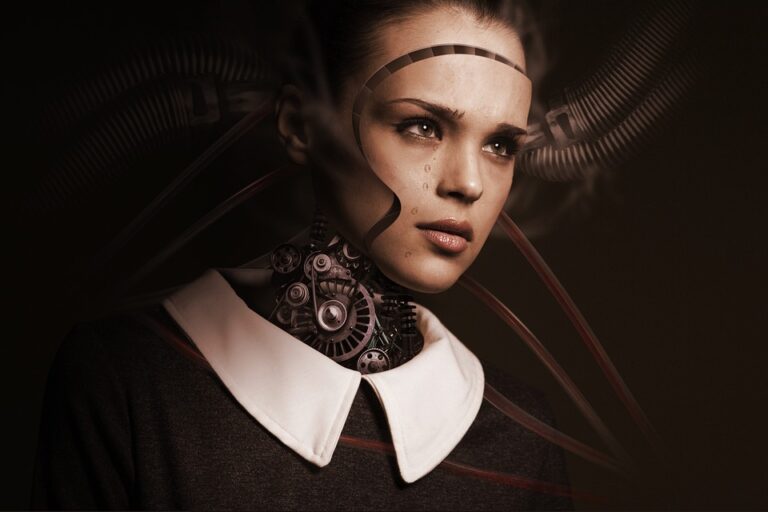Navigating the Future: How Artificial Intelligence is Transforming Industries and Daily Life
The integration of Artificial Intelligence (AI) is no longer a distant prospect; it is a reality actively reshaping both industries and everyday life. As businesses and individuals alike adapt to this transformative technology, understanding its implications is crucial for staying ahead in a rapidly changing world.
What is Artificial Intelligence?
At its core, Artificial Intelligence refers to the simulation of human intelligence in machines programmed to think and learn like humans. This encompasses various technologies, including machine learning, natural language processing, and robotics. As of 2023, AI is estimated to contribute $15.7 trillion to the global economy by 2030, showcasing its potential impact across multiple sectors.
Industries Embracing AI
-
Healthcare
- AI technologies assist in diagnosing diseases through image recognition, predicting patient outcomes, and personalizing treatment plans. For example, algorithms developed by Google Health have shown superior accuracy in identifying breast cancer in mammograms compared to human radiologists, with a 94.6% accuracy rate.
-
Finance
- In the financial sector, AI algorithms perform risk assessment, fraud detection, and trading. According to a 2023 report, 80% of banks plan to invest in AI capabilities over the next three years, reflecting the urgency to enhance operational efficiencies.
-
Retail
- Retailers are using AI to analyze consumer behavior, optimize inventory, and personalize shopping experiences. Target, for example, utilizes AI to predict customer preferences, which significantly boosts sales and enhances customer satisfaction.
- Transportation
- Autonomous vehicles represent a bold leap in AI application in transportation. Companies like Tesla and Waymo are testing self-driving technology that could revolutionize how we commute, potentially reducing traffic-related fatalities.
Daily Life Transformation
Beyond industry applications, Artificial Intelligence is also dramatically transforming our daily lives. From smart assistants like Siri and Alexa to personalized content recommendations on platforms like Netflix, AI is seamlessly integrating into our routines, making life more convenient.
Example of Daily Interaction
Consider the way we use AI-enabled devices daily. A smart thermostat learns your heating preferences over time, adjusting itself automatically to provide optimal comfort while saving energy. This not only enhances your living environment but also contributes to energy conservation—a win-win scenario.
Challenges and Considerations
While the benefits of Artificial Intelligence are evident, there are challenges that must be addressed:
-
Ethical Concerns: The implementation of AI raises ethical questions regarding privacy, bias, and decision-making accountability. For instance, facial recognition technology has faced criticism for potential racial bias, prompting calls for greater regulation.
- Job Displacement: As AI systems take over repetitive tasks, there are concerns about job losses in certain sectors. A report by the World Economic Forum predicts that 85 million jobs may be displaced by AI by 2025, underscoring the need for strategies to upskill workers.
Balancing Innovation with Responsibility
To navigate the future effectively, industries and individuals must balance AI innovation with responsible practices. This involves adopting AI solutions while ensuring ethical standards, privacy protection, and community engagement in deploying these technologies.
Future Trends in AI
The future of Artificial Intelligence looks promising, with several emerging trends set to shape its trajectory:
-
Increased Collaboration: AI will increasingly partner with human workers, enhancing their capabilities rather than replacing them. For example, AI tools can assist doctors in making more accurate diagnoses, providing complementary rather than competitive advantages.
-
Stronger AI Governance: As governments and organizations recognize the importance of ethical AI use, developing more robust frameworks for governance and accountability will become paramount.
- More Human-like AI Interfaces: Advancements in natural language processing will lead to more emotionally aware AI systems that can engage in complex conversations, significantly enhancing user experience.
Conclusion: Embracing the AI-Driven Future
In conclusion, Artificial Intelligence is fundamentally transforming industries and daily life, presenting both opportunities and challenges. To thrive in this AI-driven future, individuals and businesses must stay informed and agile, embracing innovation while ensuring ethical considerations are at the forefront of their strategies.
For more insights into AI and its impact, explore our articles on AI in Healthcare and The Future of Work with AI. For further reading on the ethics of AI, consider reviewing the World Economic Forum’s report.
Suggested Images
-
Image Alt Text: Artificial Intelligence in Healthcare
- Description: A doctor analyzing data with AI software on a screen.
- Image Alt Text: AI and Daily Life
- Description: A person using a smart assistant at home.
This structured approach ensures that readers gain valuable insights into how Artificial Intelligence is not only transforming industries but also everyday life, allowing them to navigate the future with greater awareness and understanding.


